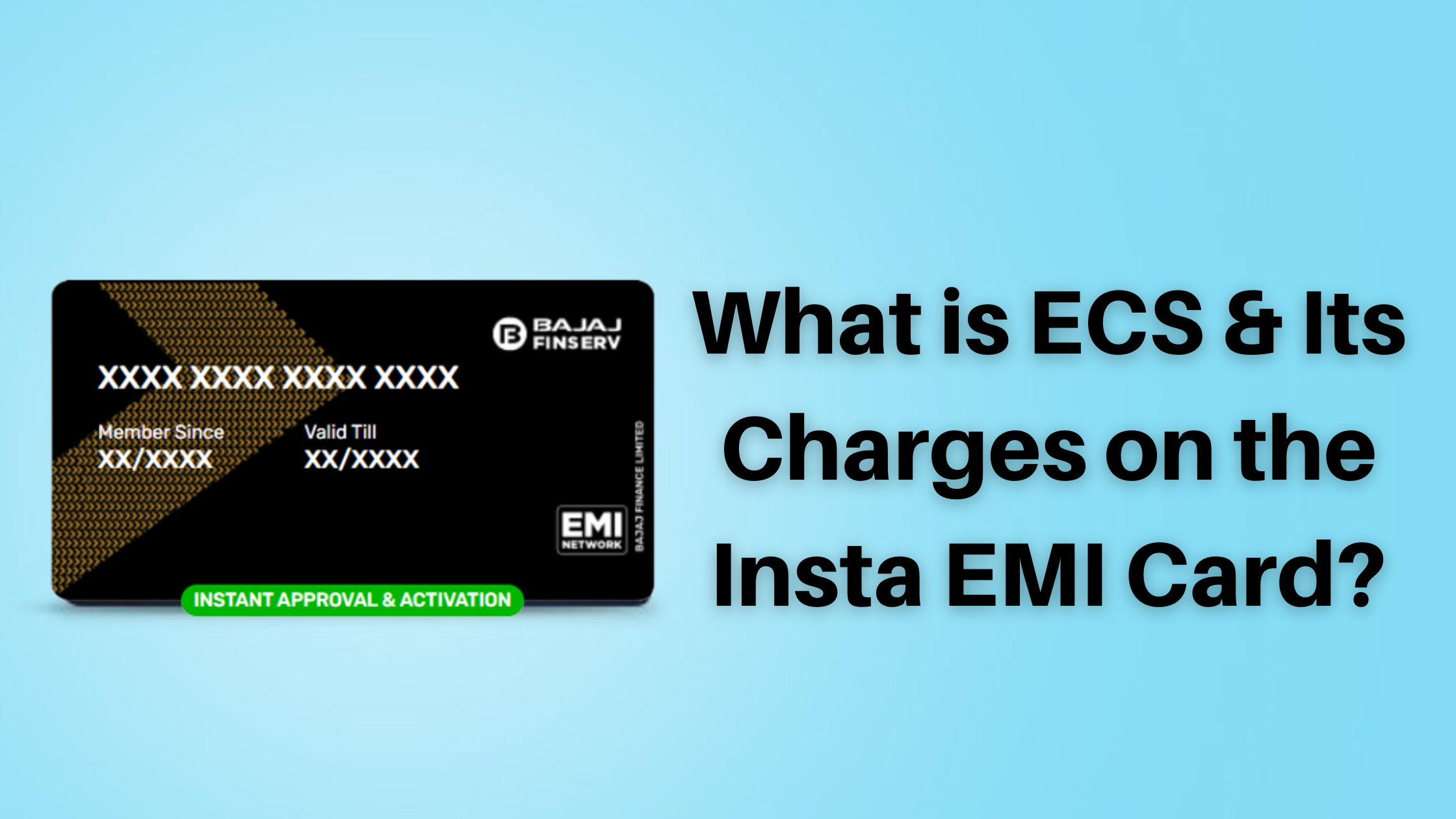ECS means Electronic Clearance Service. It is an electronic receipt and payment method for routine and recurring transactions. It is an alternative method of carrying out bulk payment transactions, such as periodic (monthly, quarterly, half-yearly, or yearly) payments of interest, salary, pension, commission, dividend, or refund by banks, companies, corporations, or government agencies is provided by the Electronic Clearance Service (ECS) scheme.
An ECS mandate verifies that you have no objections to Bajaj Finserv withdrawing a specific amount from your account each month in relation to your purchase. You need to provide a canceled check and a signed ECS mandate along with your KYC documents when applying for a Bajaj Finserv EMI Network Card.
The RBI introduced the Electronic Clearing Service (ECS), an electronic fund transfer method. It makes large-scale money transfers between bank accounts easier. ECSs are routine, recurring transactions that institutions use to pay for dividend distribution, interest, pension, and other expenses. Typically, loan lenders use it to deduct EMIs from the borrower periodically. The National Automated Clearing House (NACH), a division of NPCI, manages ECS debits (National Payments Corporation of India).
How Does ECS Mandate Work?
- You must sign an ECS mandate to use ECS. This mandate is the evidence telling your bank to do these things:
- This mandate gives your bank the go-ahead to periodically credit your lenders’ account with a specific sum of money as monthly payments for your loan or any purchases.
- Your bank account information, branch information, and other required account information are included in the mandate.
- You must explicitly state the reason for the debit, the maximum amount the bank should debit, and the duration of the mandate when requesting it.
- You will receive a notification as soon as the bank deposits the money and all the pertinent information regarding the transaction.
Types of ECS mandate
Two different ECS mandates exist:
ECS Credit
An institution will credit money to your account through ECS. It permits the payment of dividends, pension distribution, and wage distribution. You receive the money on time and do not have to deal with physical instrument loss or fraudulent encashment.
ECS Debit
ECS debit is when you decide to make periodic investing payments like EMIs or SIPs. You may pay your credit card bills, loan payments, and mutual fund distributions on schedule.
ECS Mandate Charges
Transactions made with ECS mandate charges that bounce are handled similarly to checks. There is a fee if the transaction fails because there are not enough funds in the account. Various banks charge different amounts for ECS mandates. The subsequent ECS won’t be deducted if the waiting ECS isn’t deposited. The NACH mandate determines your ECS NACH charges. As instructed by the RBI, transactions done through the ECS mandate are free of charge. According to the order, sponsor or beneficiary banks are not permitted to impose ECS mandate fees to their clients. The following list includes potential ECS mandate fees:
- Participating banks could be charged for ECS mandates.
- Banks that authorize the debit must pay a fee of 25 paise to the clearing house and 50 paise to the destination bank for each transaction.
- For debiting money from customers’ accounts, bank branches often don’t impose ECS mandate fees. Banks can charge you ECS sign verification fees even if you don’t have an ECS mandate when you register for one.
- On financial institutions’ websites, ECS sign verification charges are under service costs.
- Sponsor banks are expected to transparently publish all levied costs for ECS mandate charges under ECS credit and debit.
Charges for ECS NACH mandates vary between banks. In addition to ECS sign verification fees, there will be additional fees for insufficient balance. Further fees will be assessed if your ECS transactions fail because your account balance is insufficient. You can halt the transactions and ECS NACH mandate charges. Your ECS mandate charges instructions will be viewed as a “stop payment,” much like the check clearing system. You can follow the steps below to remove the transaction process and any associated ECS mandate charges by contacting your bank or another institution to which you have granted the ECS mandate:
- You can cancel an ECS mandate charge and its associated process by notifying your bank and the recipient of the payment in a written application.
- You can give the user institution advance notification of the mandated withdrawal.
- You can withdraw the mandate straight from your bank without involving the user institution.
- You should keep an eye on your payments before rescinding the mandate.
Steps to register for Bajaj Finserv e-Mandate?
- Access the Bajaj Finserv Customer Portal.
- Choose the e-Mandate option.
- Review the personal information and select “continue.”
- Verify your bank account information, choose your preferred registration mode, review the disclaimers, and click “submit”.
- If you use the OTP option, enter the code sent to your registered phone number and click “Submit.”
- You will be sent to the website of your chosen bank. To authenticate your e-Mandate for Bajaj Finserv via the bank’s website, enter your login information and OTP.
- Your bank will authorize As soon as the mandate has been authenticated.
Your application will be registered with your respective banks once you finish the above mentioned stages. After that, in your Bajaj Finserv account, you may view the Bajaj Finserv e-Mandate status.
Long lines outside of collection centers can be avoided with ECH. ECS is chosen because the RBI deregulated ECS fees, allowing sponsor banks to charge user institutes for them. Destination banks take care of providing beneficiary account holders with free ECS credit. With the ECS NACH mandate, cashless transactions would be simple to track and better managed.


